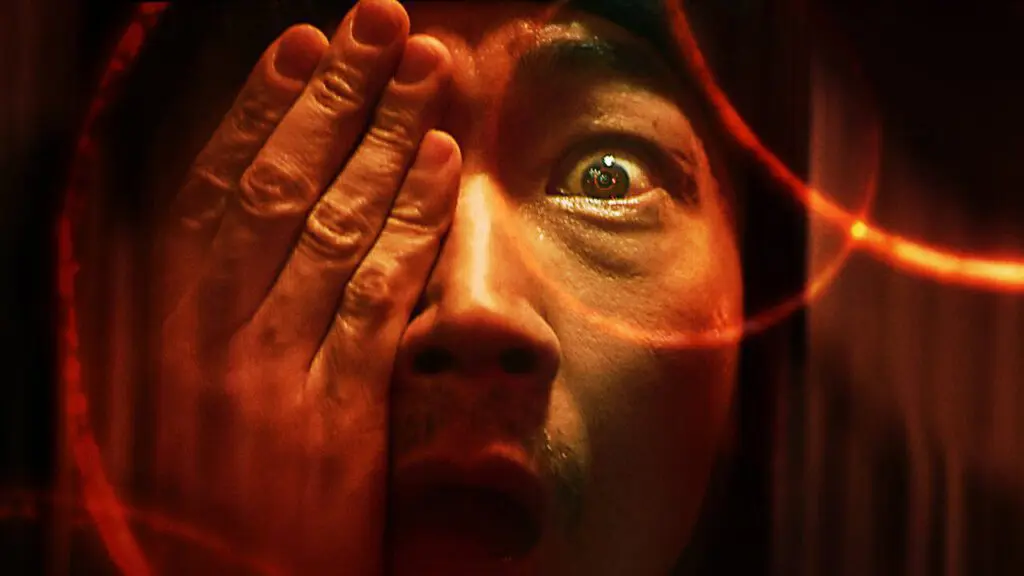Summary
Homunculus pales in comparison to its source material, indulging in visual effects and wackiness but losing sight of human drama.
Before I sat down to watch Homunculus, Netflix’s adaptation of Hideo Yamamoto’s beloved manga series, I wondered why the streaming giant had barely bothered to market it.
Two hours later, after I’d finished it, I understood why – it’s rubbish, full of service-level gloss over actual substance, changes to the source material that are doubtlessly going to infuriate the die-hard fans who have been waiting a decade to see the story adapted, and dramatic inertia that all the weirdness in the world can’t fix. There’s plenty of weirdness in Homunculus, but very little reason to care about any of it.
The setup, at least, remains unchanged. Susumu Nakoshi (Gô Ayano – as seen in A Family, Hard Days), a down-on-his-luck bum living out of his car, is talked suspiciously easily into allowing Manabu Ito (Ryô Narita), an eccentric medical student, to drill a hole through his skull in the hopes of opening up a spiritual “third eye”. The process, known as trepanation, is an age-old technique with a surprisingly high success and survival rate, but it’s not the kind of thing anyone in their right mind would volunteer for, whether it unlocks psychic powers or not.
Nevertheless, Nakoshi’s newfound talents turn him into a kind of itinerant Rasputin-style soothsaying holy man… and a rapist.
The movie that grows out of this concept doesn’t deserve the layered performance that Ayano lends to Nakoshi, whose waning sanity and increasingly bizarre jaunts through the psyches of Yakuza heavies, schoolgirls, and indeed himself, forms the only worthwhile narrative thread in the film.
It’s as much of an excuse to flex Ayano’s talents as it is the obviously ample FX budget dug out of Netflix’s bottomless coffers. The dynamic between Nakoshi and Ito evokes Frankenstein and his monster; a demented creator channeling dangerous obsession through his creation.
But even though Nakoshi has some agency, he’s tethered to a plot that leaps from set-piece to set-piece in an almost anthological way, keeping the events feeling disconnected and the audience at arm’s length.
It doesn’t help that Homunculus is so excited about its budget that it frequently goes OTT with its visuals, resorting to surreal fantasias where a simple sense of heightened reality would work better.
Thematically, Nakoshi’s third eye is supposed to be hung up on the closeness between illusion and reality, the idea of the titular homunculi as manifestations of trauma – getting too outlandish detracts from that idea rather than reinforcing it. A scene during which Nakoshi drills into his own head, perhaps having read the script, is much more effective for playing things straight. Compare that to another scene involving a churning horny sand monster, and the distinction is pretty clear.
Distinction is something that this film craves, from its source material especially, but deliberately riling manga fans hardly seems like a smart way of doing business, especially when the changes aren’t simply meaningless but are also, on balance, harmful, a betrayal.
A lot of the weirdness begins to be toned down on the way to a staid finale, but the human drama doesn’t ramp up to compensate. By that point, almost two hours into a story that was spinning its wheels after one, there’s little reason to be excited about the conclusion.
Read More: Homunculus Ending Explained




